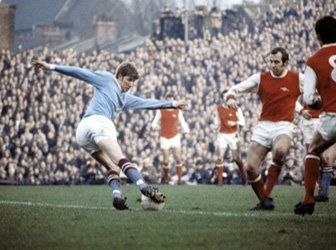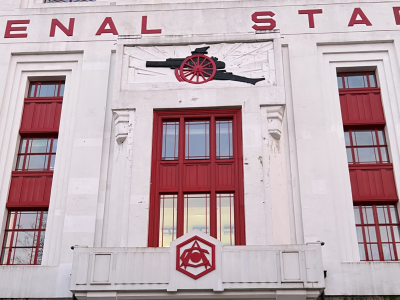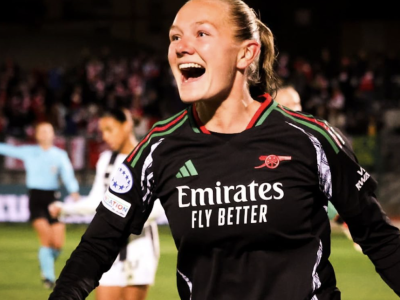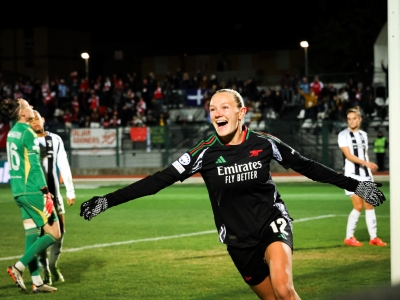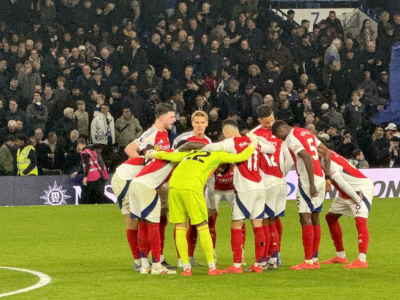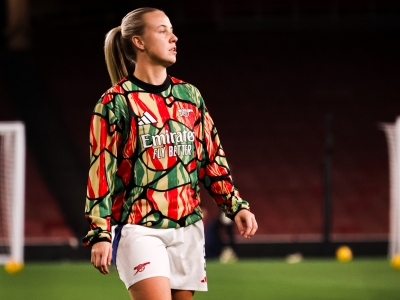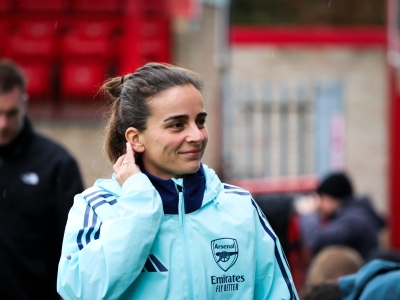Arsenal’s first visit to Manchester City came in Late December 1893 in the old Second Division at the latter’s Hyde Road home, when the Gunners were known as Woolwich Arsenal and City as Ardwick FC. Arsenal left Manchester with a 1-0 win. By the time of Arsenal’s next visit twelve months later, Ardwick FC had become Manchester City and inflicted a 1-4 defeat on the Gunners. After failing to win the next seven away trips to City, Arsenal achieved their next victory at Hyde Road in April 1906 – this time in the top flight. Arsenal managed a 2-1 win at Hyde Road with both goals scored by Charlie Satterthwaite. Arsenal made it two wins over City on the bounce with a 4-1 win the following September, secured with two goals from a Peter Kyle who was making his debut after transferring from Tottenham Hotspur – in the days before the two sides were North London rivals.
Arsenal’s last visit to Hyde Road in October 1923 ended in a 0-1 defeat for the Gunners. Eleven months on, Arsenal’s first visit to new Maine Road home ended in a 0-2 defeat while the Gunners first win at Maine Road coincided with Herbert Chapman’s first away trip to City in November 1925. Arsenal won 5-2 with goals from Sid Hoar, Samson Haden, Charlie Buchan and two for Jimmy Brain. As Arsenal came to dominate English football during the 1930s, the Gunners achieved three wins at Maine Road on the bounce starting with a 4-1 win on Christmas Day 1930 with goals from Jack Lambert, David Jack, Cliff Bastin and Joe Hulme with another win in the return fixture the following day at Highbury.
In September 1931, Arsenal managed a 3-1 win with goals from Jack Lambert and two for David Jack, then making it three in row twelve months on with a 3-2 win with goals from David Jack and Ernest Coleman. In 1936/37, Arsenal and Manchester City were vying for the League Championship with the Gunners one point ahead of City (unbeaten since Christmas) at the time of their visit to Maine Road in early April. The Blues inflicted a 0-2 defeat on Arsenal in front of a crowd of 74,918 to take pole position in the title race with a game in hand. For City it would be the second win in a run of five straight victories, while another defeat for Arsenal at the end of the month – 0-2 to Chelsea at Stamford Bridge – ended Arsenal’s title run as a 4-1 win for Manchester City at home to Sheffield Wednesday gave the Blues their first ever League title. Arsenal finished the season in third place behind Charlton Athletic.
After their triumphant title win, City believe it or not actually celebrated by undertaking a tour of the Third Reich which included taking on the German National side in the Berlin’s Olympic Stadium. Adolf Hitler wanted to use their tour as propaganda for his regime, however City player Peter Doherty (obviously not he of Libertines fame) explained: ‘We were expected to give the Nazi salute at the line-up before the match started, but we decided merely to stand to attention. When the German national anthem was played, only 11 arms went up instead of the expected 22!’ (Unfortunately, when the English national side visited a year later the FA weren’t so assertive as to decline Hitler’s request). In the event, City lost to the Germans 2-3.
The following season – 1937/38 – saw the title return to Highbury. So tight was the title race this season that with three matches left to play as many as nine other clubs had a mathematical chance of catching Arsenal at the top of the table. Reigning Champions Man City found themselves relegated despite scoring more goals than any other side in the division. Arsenal’s visit to Maine Road (the last before the outbreak of the Second World War) that season came in February, where the Gunners managed a 2-1 win with goals from Dennis Compton and Ted Drake.
It would be another ten years before Arsenal would play Manchester City away in a competitive fixture again, coinciding with another Arsenal title winning season in 1947/48. Arsenal had led the old First Division since August and had a lead as big as nine points (under a two points for a win system) in mid-March. Tom Whittaker’s side had secured the title by the second week of April with a 1-1 draw away at Huddersfield, while both of their nearest challengers suffered defeat – Matt Busby’s Manchester United losing 0-2 away to Everton, while Burnley lost 0-2 away to relegation candidates Sunderland.
Arsenal faced Manchester City away at Maine Road in the penultimate game of the season to play out a 0-0 draw, in what was the fourth game in a row which Arsenal failed to win. The Gunners however made up for it in the final game of the season with an 8-0 victory over bottom of the table Grimsby Town, secured by goals for Alex Forbes, a Jimmy Logie Penalty, two for Dennis Compton and four goals for Ronnie Rooke (despite finding fame in Sacha Baron Cohen’s recent film, this was the last time ever Grimsby Town have played a game in the English top flight). Arsenal were unable to recapture their league form the following season, however secured their first post-war away win over Man City with a 3-0 win with goals from Don Roper and two for Doug Lishman.
That win would be the first of four straight victories for Arsenal over Manchester City at Maine Road with a 2-0 victory six months on with goals for Freddie Cox and Jimmy Logie, as well as another win by the same score line in September 1951 with goals from Cliff Holton and Doug Lishman. On their way to another title in 1953 the Gunners made it four in a row. A 4-2 win for Arsenal over Manchester City with goals for Jimmy Logie, Don Roper and two for Peter Goring took the Gunners to within two points of league leaders Wolves, but with three games in hand. After failing to win the next three visits to Maine Road, Arsenal returned to winning ways in March 1957 with a 3-2 win over City. On the scoresheet that day would be Mike Tiddy, Jimmy Bloomfield and Derek Tapscott.
For eight years Arsenal would fail to lose a game at Maine Road. After a 1-2 defeat in September 1954, the Gunners went five games unbeaten – a run which included a 4-2 win in March 1958 with a goal for David Herd and a hat-trick for Jimmy Bloomfield and a 2-1 win in January 1960 with Mel Charles on target for the Gunners, before a 2-3 defeat in January 1962 where Alan Skirton bagged both goals for Arsenal. A 4-2 win for Arsenal over City at Maine Road (with goals for Joe Baker, Geoff Strong and two for Johnny McLeod) in December 1962 however would be the Gunners last victory there for the next eight years. At the end of that season City would drop out of the top flight and not return until gaining promotion under the reign of Joe Mercer and Malcolm Allison in 1966/67.
When City came back up there followed four straight 1-1 draws, the first of which would come in early September 1966 where Jon Sammells would be on the scoresheet for Arsenal. Eighteen months later, by the time of Arsenal’s next visit to Maine Road in February 1968 City would be five points behind their neighbours Man United in the race for the League title in fourth place, while Arsenal were further down in the pecking order in eighth position. George Graham would be on target for the Gunners as they would share the points with City. After United bagged a fifth straight League win over Spurs at Old Trafford, the gap between the two Manchester clubs would be six points, though the Blue half of the City would eventually claw back the deficit to seal their second league title on the final Saturday of the season.
Eight months on brought a flying start to the season for Arsenal, who won seven of their first nine games and briefly topped the old first division. In the run up to the Gunners’ visit to Maine Road in early October however, a defeat to Leeds United as well as two scoreless draws against Sunderland at home and Manchester United at Old Trafford saw Arsenal lose pole position to Liverpool. Another 1-1 draw, with John Radford on the scoresheet, meant Arsenal dropped to third after being leapfrogged by Leeds United, who went on to win the title that season. Arsenal finished the season in fourth position, while City failed to mount a defence of their title and slipped to thirteenth.
The fourth and final 1-1 draw of this sequence of fixtures would come in February 1970, with both sides slumping to mid-table mediocrity in the League. George Graham would be on the scoresheet again for the Arsenal. By the end of that calendar year however, Arsenal would grab their first victory over City at Maine Road after an eight year wait. The Gunners were second in the table and four points behind Leeds United but with a game in hand, while City would be seven points behind in fifth place. Goals for George Armstrong and John Radford would give Arsenal both points, while Leeds United dropped a point that same day in a 1-1 draw at Anfield, meaning that Arsenal closed the gap to three points.
Arsenal, of course, were challenging for the League and FA Cup Double that season and after defeating City at Highbury in the League in early February to close the gap on Leeds United to three points with a game in hand after their defeat at home to Liverpool, the Gunners would head to Man City in the fifth round of the FA Cup. Scheduled a week later, the game would be postponed due to a waterlogged pitch and rescheduled for the following Wednesday. In the run up to the tie, Arsenal’s Frank McLintock decided to use Malcolm Allison’s new found fame as an outspoken TV pundit (acquired as part of ITV’s World Cup panel the previous summer alongside Arsenal’s Bob McNab), to motivate a young Charlie George returning from a six month layoff with an ankle injury.
Arsenal won the tie 2-1 with two goals from Charlie George and saw the birth of his lying on the floor celebration that would become more famous three months later after the Cup Final. As Charlie George explained in an interview with Henry Winter for the Daily Telegraph in 2014: ‘As I laid on the floor, I was looking over to Malcolm Allison…Frank McLintock came in the dressing-room before the game and said: 'I've been talking to Malcolm and Malcolm thinks you're crap….after the game, I'm running up the tunnel, giving Malcolm some abuse. He doesn't know what's going on. Frank had to go and have a word and say: 'Sorry Malcolm, I wound Charlie up. I told him you said Charlie was no good. Malcolm said: 'Thanks!' Frank was like that; he knew how to get you motivated'.
After three wins over Manchester City on the way to the Double, the following season the Gunners would suffer two defeats to Mercer and Allison’s title challenging side. This included City’s first win over Arsenal at Maine Road for a decade and only their third since the end of the war, as Arsenal suffered a 0-2 defeat at the start of March. This win kept City at the top of the table with a four point cushion over Leeds United, but having played two games more. City however finished fourth, but one point off of Champions Derby County. By the time of Arsenal’s next visit to Maine Road twelve months however, Mercer had gone and despite Allison being a great source of tabloid titillation, his reign in the hot seat at Maine Road, along with the remainder of his managerial career would be ultimately underwhelming.
The Blues were languishing in thirteenth position, while Arsenal in contrast were involved in a title, just two points behind leaders Liverpool. A wonder goal from Charlie George and a second from Ray Kennedy gave Arsenal the points with a 2-1 victory. Allison however would last just six days more at Maine Road before heading down South to take over at Crystal Palace. Arsenal’s title challenge though would be ultimately unsuccessful, finishing as runners up. Johnny Hart meanwhile took over from Allison but was forced to retire six months on from a pancreatic attack. At the time of Arsenal’s visit for the 1973/74 season in November, Tony Book had taken temporary charge of City for his first of three spells in charge of City - two as caretaker manager.
Arsenal would succeed again with another 2-1 victory with goals from Brian Hornsby and Eddie Kelly. In between then and Arsenal’s next visit in October 1974, Ron Saunders had been appointed and sacked with Book taken on permanently. City inflicted a 1-2 defeat on Arsenal with John Radford on target for the Gunners. That win would be the first of four straight City’s victories over Arsenal at Maine Road, the second coming in late April 1976, inflicting a 1-3 defeat on the Gunners with George Armstrong on target. Title chasing City made it a hat-trick in February 1977, with Arsenal suffering a 0-1 loss, while eight months later a Malcolm MacDonald goal couldn’t prevent Arsenal suffering a 1-2 defeat.
Supermac would score again in August 1978 in a 1-1 draw with City at Maine Road, before Arsenal would bag their first away win over Man City in six and a half years with a thumping 3-0 win in March 1980 with goals from Frank Stapleton and two for Liam Brady. It would however be another five and a half years before the Gunners would achieve another victory at Maine Road. Two back to back draws – a Willie Young goal securing a 1-1 score line in September1980, and a scoreless draw in March 1982 – followed before City managed to inflict a 1-2 defeat on Arsenal (with Brian McDermott on target for the Gunners) in December 1982.
At the time, of the two sides it looked more like Arsenal would go down. Around a month earlier, around a third of the way into the season City were sitting second in the table just two points behind Liverpool at the top of the table. After their victory over Arsenal, City lay in ninth position, while Arsenal with just one win in the last six games languished in sixteenth position. A steep decline however followed with City relegated on the last day of the season, while Arsenal climbed to the safety of ninth position in the table by the close of 1982/83. City would fail to return back to the top flight until 1985/86. That season Arsenal would draw City away in the third round of the League Cup. The Gunners would progress to the next round with a 2-1 win secured by goals from Ian Allinson and Charlie Nicholas.
For the first time in twelve season Arsenal would win both League fixtures, with a win at Highbury just five days after the League Cup tie. Arsenal would visit Maine Road again in the League in April 1986 on the back of three straight defeats after Don Howe walked out on Highbury on Good Friday. Of the eleven games in which Caretaker Manager Steve Burtenshaw took charge of the Arsenal side, he had managed the first of only three wins during this period, secured with a goal from Stewart Robson. Twelve months on under George Graham however, Arsenal had secured their first piece of silverware in eight years by winning the League Cup (one of the sides defeated along the way would be Man City at home in the third round).

